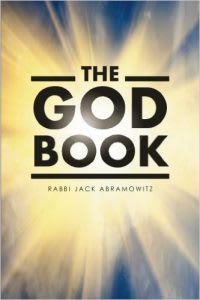17. Who Can Be a Prophet?
The articles in this series are based upon ideas expressed in the Rambam’s Moreh Nevuchim (The Guide for the Perplexed). Numbers in brackets represent the book and chapter of Moreh Nevuchim where these ideas are discussed.
NOTE: The practical applications of who can receive prophecy clearly only apply at a time when one could receive prophecy. Nowadays, prophecy is withheld from us altogether, regardless of one's qualifications. Nevertheless, this discussion is important towards understanding the nature of prophecy.
There are three different positions when it comes to prophecy. (Actually, there are four but the Rambam declines to introduce the position of the atheists. As they don't even believe in the existence of God, their thoughts on how He communicates with man are rather moot.) [II, 32]
The first position - held by ignorant people - is that God singles out individuals, gives them a message and sends them on a mission. According to their point of view, God could select any person regardless of age, intelligence, or other personal characteristics, so long as the one in question is basically a good person. (Even those who adhere to this mistaken position do not take it so far that they think that God might select an evil person as His messenger.)
The second position, which is the one held by the philosophers, is that all people possess the innate capacity for prophecy, though only some rare individuals work to perfect the ability. This requires developing oneself morally and intellectually. According to this understanding, an ignorant person could not be a prophet because he would be unable ever to fully develop his potential in this area. Also, a person would never be surprised by suddenly receiving a prophecy, as he had trained for it. Finally, according to this position, successfully achieving prophecy would be a foregone conclusion for those who properly train for it, the same way that diets and exercise regimens guarantee weight loss and muscle development for those who rigorously adhere to them.
The third - and for our purposes, final - position is the one to which we subscribe, based upon Tanach. Our understanding of the matter is essentially similar to that of the philosophers except that it differs in one significant regard. No matter how much one prepares himself, we do not consider it an automatic outcome that one will necessarily receive prophecy. No matter how finely-developed one's spiritual receptors may be, the possibility always exists that God may choose to withhold prophecy from him. A person not having the use of his prophecy receptor is conceptually no different from the idea of a person not having the use of his eyes or his legs, which we all know is possible.
The Talmud (Shabbos 92a) lists criteria that one must have in order to achieve prophecy - wisdom, strength, financial independence, etc. The reality is, however, that one might spend years preparing himself to be a suitable receptacle for Divine messages but never receive one. This was the case with Jeremiah's student, Baruch, at least initially. He was told (Jeremiah 45:5) that the thing he sought - prophecy - was beyond him at that point. (It would seem that he ultimately did achieve his goal, since Talmud Megillah 14b includes him as one of the 48 prophets whose words were recorded for posterity.)
Don't be confused by uses of the word "prophet" in Tanach, as the word is used in contexts beyond those who receive legitimate messages from God. Hence, we have references to the "prophets" of various idols, as well as to the false "prophet" of Deuteronomy chapter 13. Similarly, (Joel 3:1), which tells us that "your sons and your daughters will prophesize," does not mean that every one of them will go on to become an actual prophet. The verse goes on to explain that this refers to dreams and visions, not full-blown prophecies.
Prophecy is not something that one can just reach out and grab; God does select whom He wants to receive it. However, He will only grant it to those who are wise and of proper character. A fool and an ignoramus are inherently unfit to receive such gifts. It is the combination of preparation and God's desire that will determine who does and who does not receive a prophecy.

